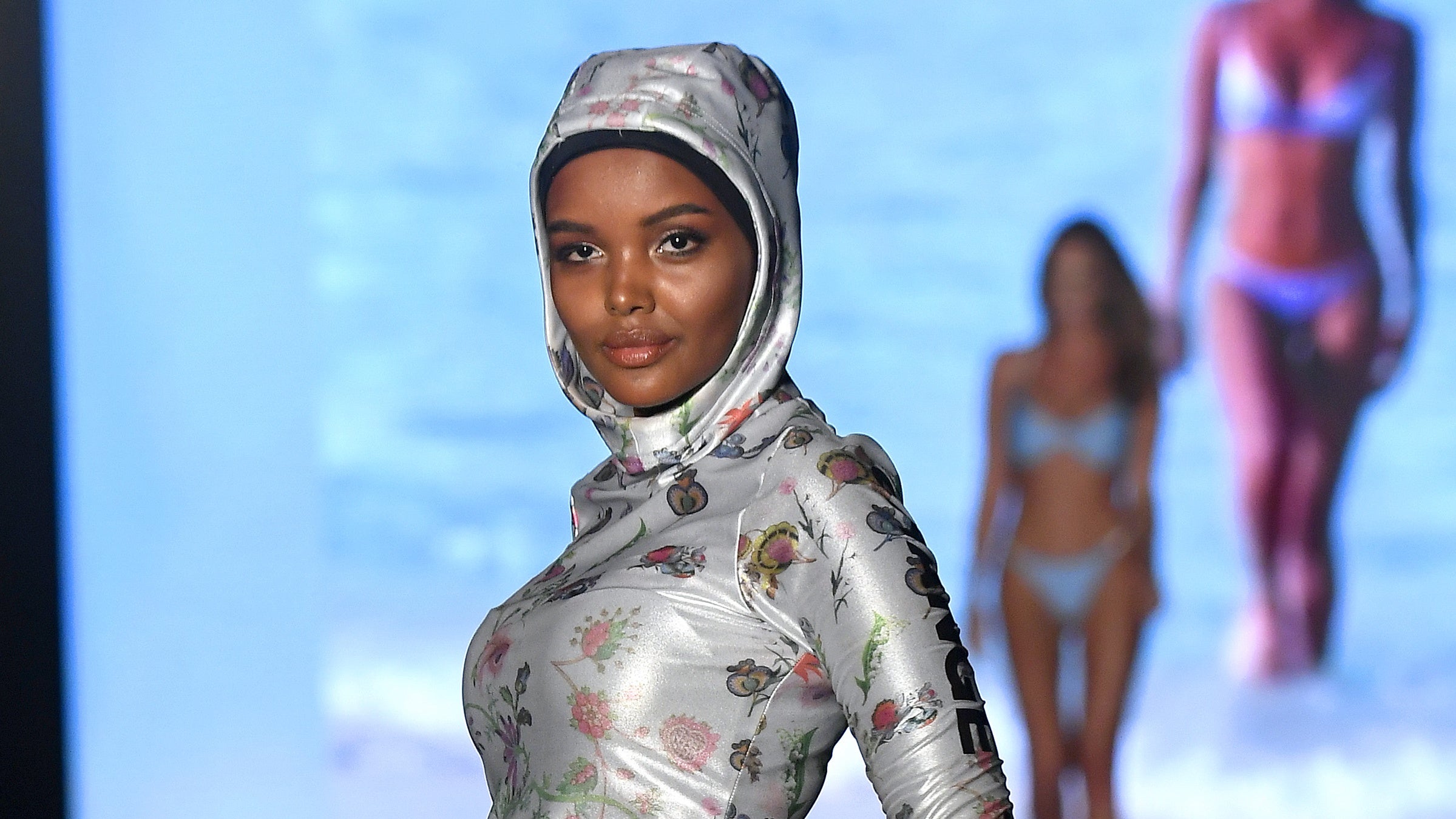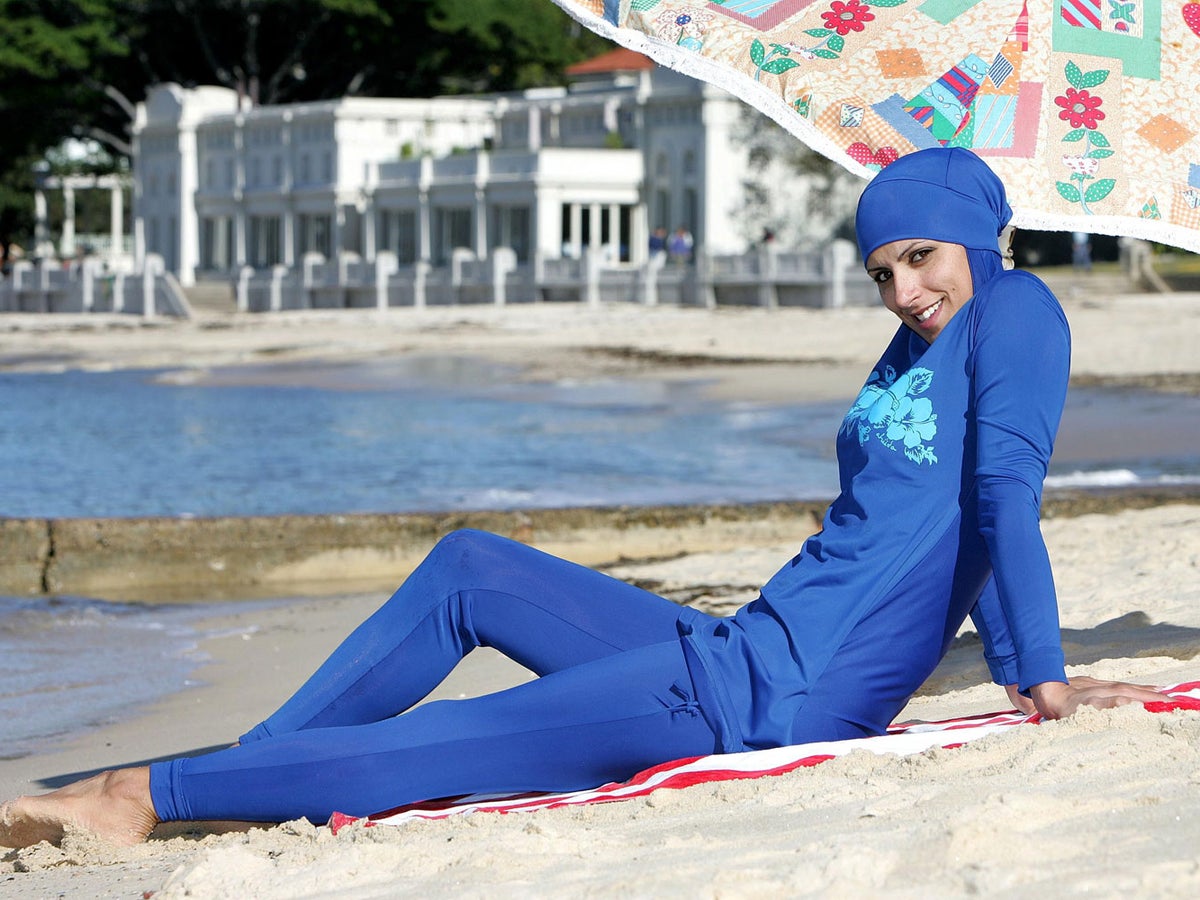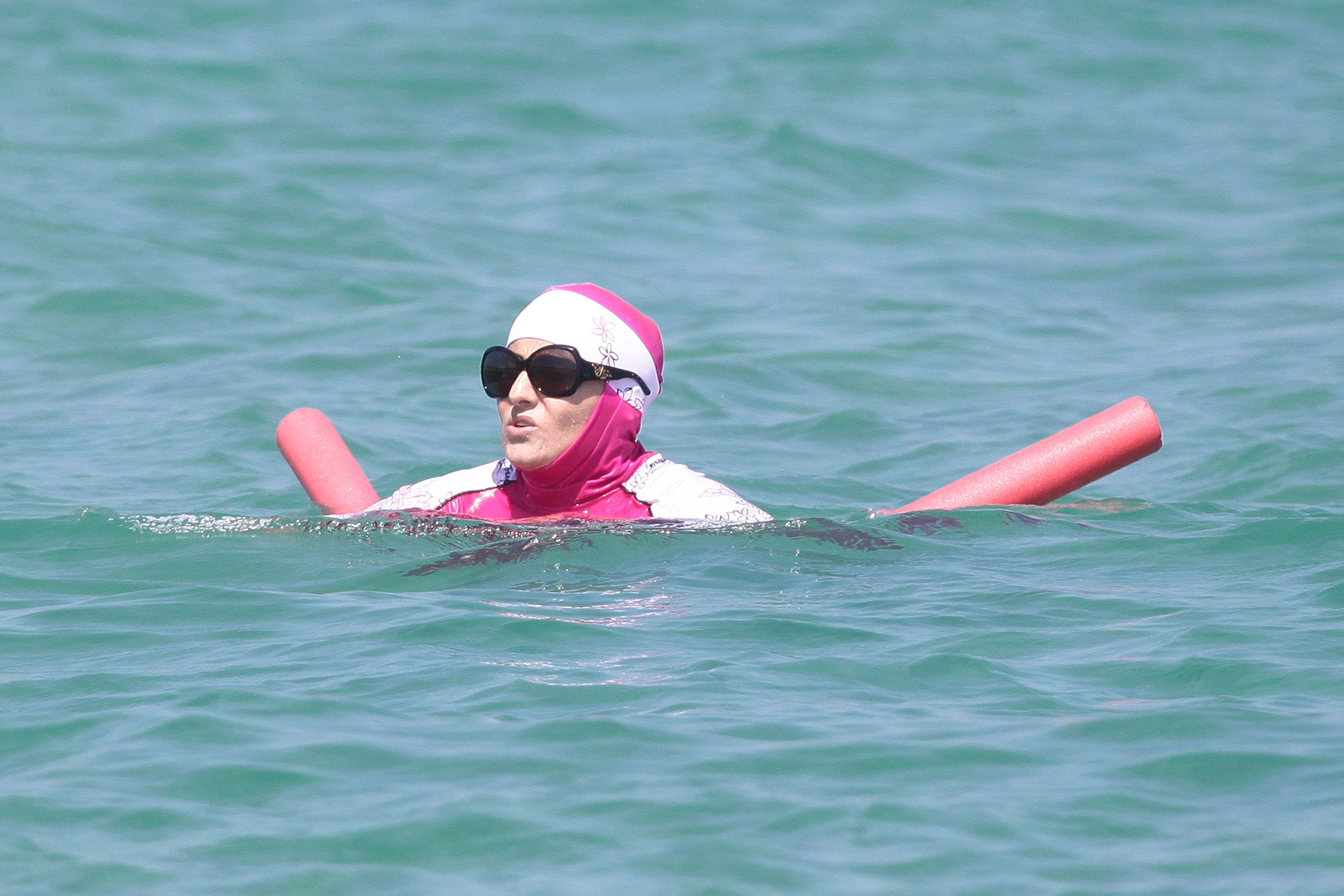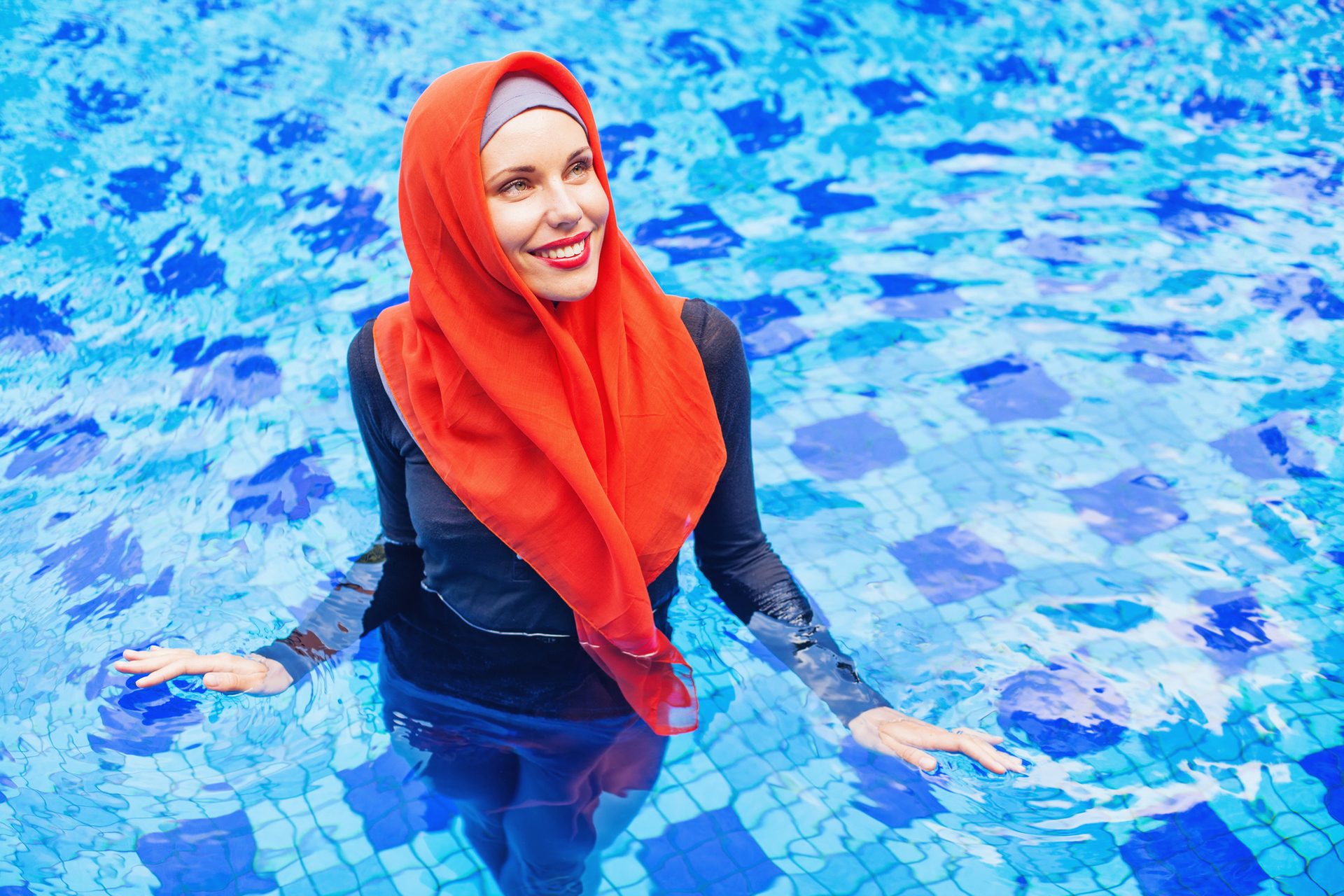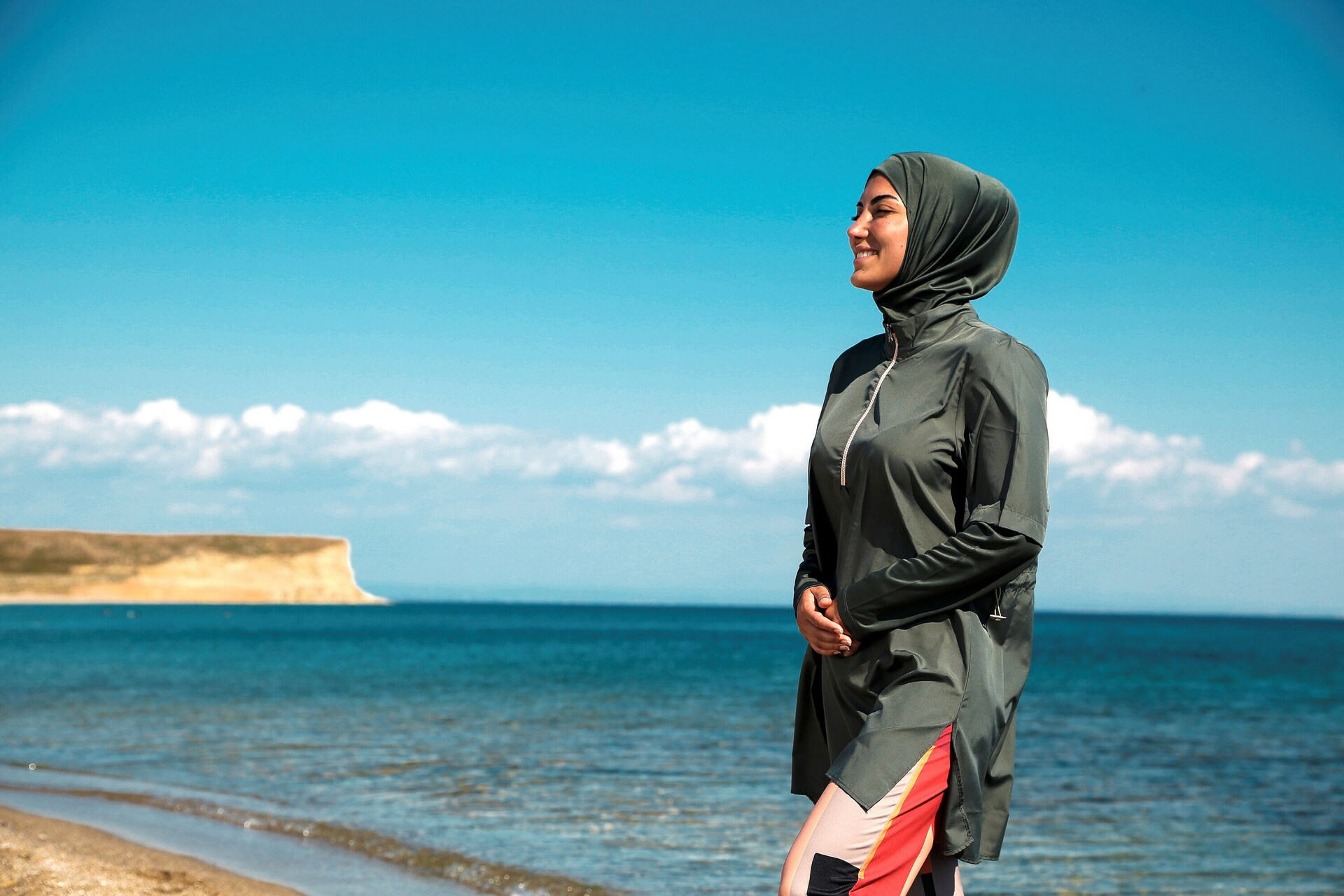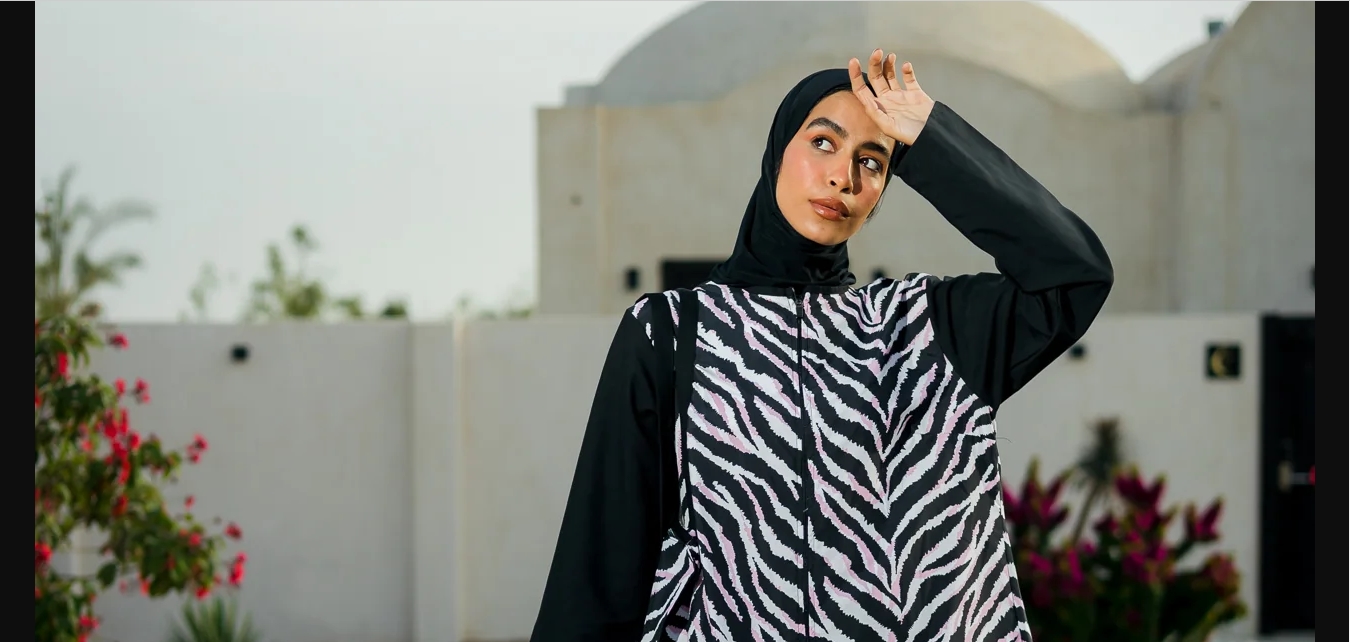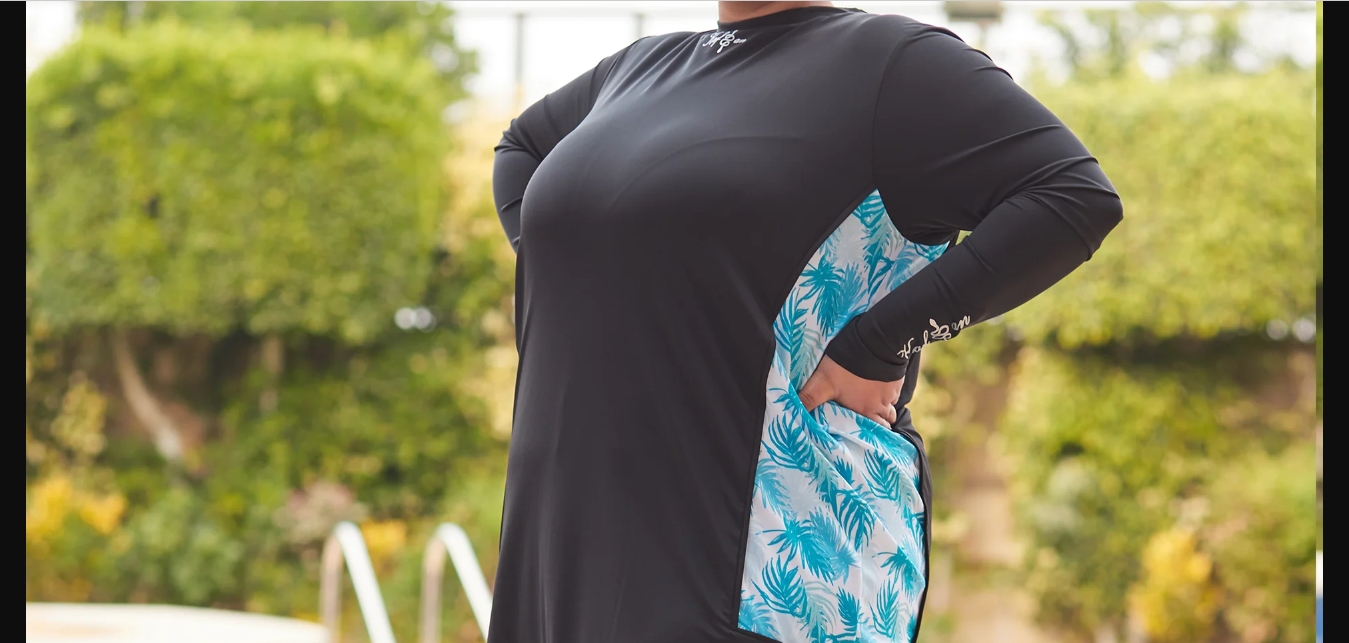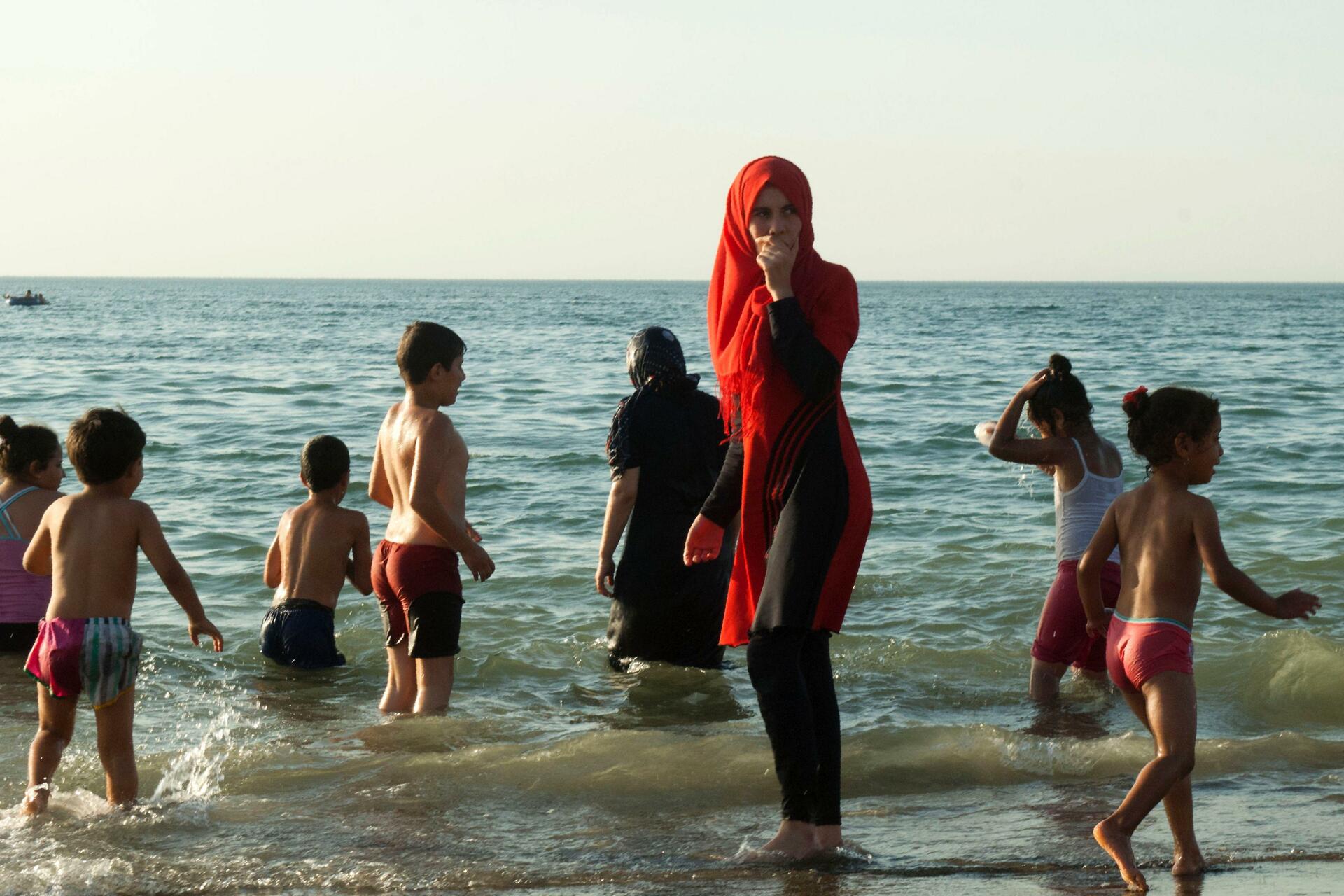Home>Women's Underwear>Swimwear>Why Are Burkini Banned In France
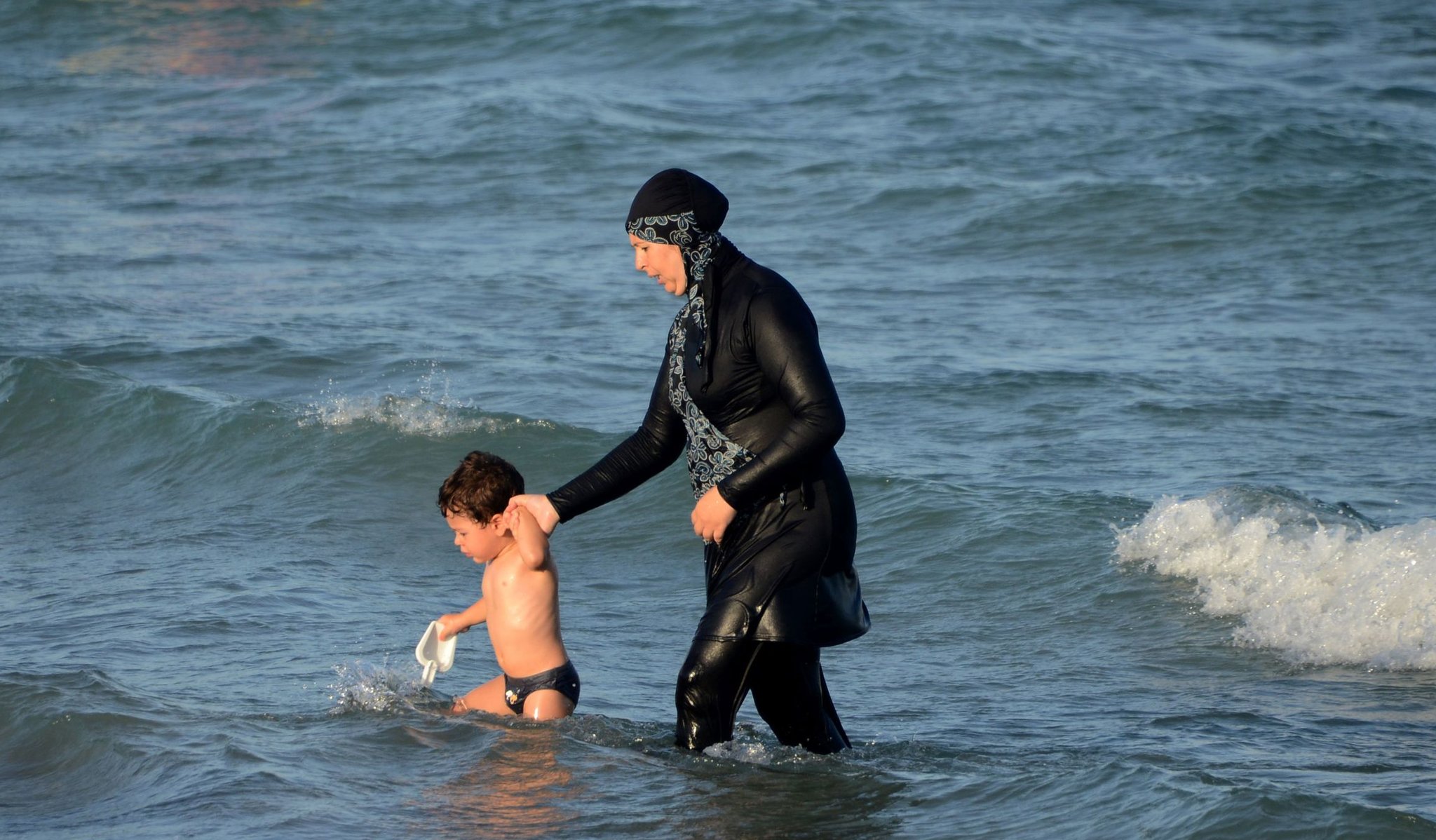

Swimwear
Why Are Burkini Banned In France
Modified: September 23, 2023
Discover the reasons behind the ban on burkinis in France and the controversy surrounding swimwear choices. Explore the cultural and social implications of this nationwide debate.
(Many of the links in this article redirect to a specific reviewed product. Your purchase of these products through affiliate links helps to generate commission for Under-tec.com, at no extra cost. Learn more)
Table of Contents
- Introduction
- History of Burkini Bans in France
- Arguments for the Burkini Bans
- Arguments against the Burkini Bans
- Impact of Burkini Bans on Muslim Women
- Violations of Human Rights and Freedom of Expression
- Public Perception and Controversies Surrounding Burkini Bans
- Comparison with Other Countries’ Stances on Burkini
- Legal Challenges and Constitutional Arguments
- Conclusion
Introduction
The swimwear industry has seen a significant evolution over the years, catering to various body types, fashion trends, and cultural preferences. One popular style that emerged in recent years is the Burkini, a modest swimsuit designed to adhere to Islamic principles of modesty while allowing Muslim women to participate in water activities. However, the presence of Burkini has sparked controversy, particularly in France, where it has been subject to bans in some areas.
The Burkini bans in France have generated heated debates and raised questions about religious freedom, cultural diversity, and the authority of the state in regulating personal choices. Critics argue that the bans infringe upon the rights of Muslim women and perpetuate religious discrimination, while proponents believe they are necessary for promoting secularism and ensuring public safety.
In this article, we will delve into the history of Burkini bans in France, explore the arguments for and against these bans, examine the impact on Muslim women, discuss the violation of human rights and freedom of expression, analyze public perception and controversies, compare France’s stance with that of other countries, and examine the legal challenges and constitutional arguments surrounding the bans.
It is important to approach this topic with sensitivity and respect for different viewpoints. Our aim is to shed light on the complexities and nuances surrounding the Burkini bans in France, while also considering the broader implications these bans have on religious freedom and societal cohesion.
Join us as we navigate this multifaceted issue, seeking to understand the motivations behind the Burkini bans, how they affect the lives of Muslim women, and the legal and ethical considerations surrounding these controversial measures. By engaging in thoughtful dialogue and critical analysis, we can broaden our perspectives and foster a more inclusive and tolerant society.
History of Burkini Bans in France
The controversy surrounding the Burkini bans in France can be traced back to the summer of 2016 when several seaside towns implemented restrictions on the full-body swimsuit. The bans were justified by local authorities in the name of secularism, public order, and security concerns. They argued that the Burkini symbolized religious extremism and threatened France’s values of laïcité (secularism).
The issue gained international attention as images of armed police officers enforcing the bans and confronting women wearing Burkini went viral. Critics of the bans argued that they were a form of religious discrimination, specifically targeting Muslim women and limiting their freedom of expression.
Despite the uproar and condemnation from various human rights organizations, some cities and regions continued to enforce the Burkini bans. The bans were challenged in court, leading to mixed rulings. In 2016, the French highest administrative court, the Council of State, overturned the ban in one particular town, ruling that it violated fundamental freedoms. However, the court did not completely ban the Burkini bans, stating that they could be justified on the grounds of public order and security in certain circumstances.
Since then, the debate over the Burkini bans has persisted. Some municipalities have repealed their bans, while others have reinforced them or implemented new regulations. The bans have also faced legal challenges, with activists and organizations arguing that they infringe upon individual rights and contravene France’s commitments to religious freedom and human rights.
It is crucial to understand that the significance of the Burkini bans extends beyond the swimwear itself. They reflect deeper tensions within French society, involving issues of identity, integration, and the role of religion in the public sphere. The bans have underscored the complicated balance between secularism and freedom of religion, as France grapples with how to uphold its values while respecting the rights of its citizens.
In the following sections, we will delve into the various arguments put forth both in favor of and against the Burkini bans. By examining the motivations behind these bans, we can gain insight into the broader societal context in which they are situated and the implications they have for Muslim women in France.
Arguments for the Burkini Bans
Advocates of the Burkini bans in France present several arguments to support their implementation. These arguments highlight concerns related to secularism, public order, and women’s rights.
One of the primary arguments put forth is the preservation of secularism. France is known for its commitment to laïcité, a strict form of secularism that separates religion from the public sphere. Proponents of the bans argue that allowing the Burkini undermines the principles of secularism by enabling the display of religious symbols in public spaces. They contend that the bans help protect the principle of neutrality, ensuring that all citizens are treated equally regardless of their religious beliefs.
Another argument often raised is that of public order and security. Proponents of the bans claim that the Burkini can be seen as a symbol of religious extremism and can potentially incite tensions or provoke reactions in already polarized communities. They argue that the bans are necessary to maintain public order, prevent public disturbances, and promote social cohesion.
Concerns about women’s rights also factor into the argument for the bans. Some proponents argue that the Burkini is a symbol of oppression and a tool of male control over women. They contend that by banning the Burkini, they are protecting and liberating Muslim women, allowing them to assert their independence and autonomy.
Supporters of the bans often argue that they are not specifically targeting Islam or Muslim women but are rather focused on the potential threat to core French values and principles. They stress that the bans are a reflection of the French Republic’s commitment to secularism, gender equality, and freedom of choice.
However, critics of the Burkini bans argue that they are discriminatory and infringe upon individual freedoms. They argue that the bans stigmatize Muslim women, reinforcing negative stereotypes and increasing marginalization. Critics contend that the bans restrict the freedom of expression and religious freedom of Muslim women, denying them the right to participate fully in society.
In the next section, we will explore the arguments against the Burkini bans, providing a comprehensive analysis of the perspectives and concerns raised by those who oppose these measures.
Arguments against the Burkini Bans
Opponents of the Burkini bans in France raise several compelling arguments against their implementation. These arguments emphasize the importance of individual freedoms, religious tolerance, and the avoidance of discrimination based on religious and cultural beliefs.
One of the primary arguments against the bans is that they infringe upon the freedom of expression and religious freedom. Critics contend that the bans deny Muslim women the right to choose how they dress and infringe upon their ability to fully participate in society. They argue that the bans undermine the principle of religious freedom, which is enshrined in international human rights instruments and is a fundamental aspect of democracy.
Critics also argue that the Burkini bans perpetuate religious discrimination and contribute to the marginalization of Muslim communities. The bans specifically target Muslim women who choose to wear the Burkini as an expression of their faith and cultural identity. By singling out a particular religious group, the bans reinforce negative stereotypes and increase social alienation, further dividing communities instead of promoting social cohesion.
Furthermore, opponents claim that the Burkini bans reflect gendered assumptions about women’s autonomy and agency. They argue that the bans restrict the choices and freedoms of Muslim women, denying them the right to dress in line with their religious beliefs and cultural practices. By imposing restrictions on women’s clothing, the bans reinforce patriarchal norms and undermine the principles of gender equality.
Critics also question the legitimacy of security concerns as a justification for the bans, arguing that there is no evidence to support the claim that the Burkini poses a threat to public order. They argue that the bans are disproportionate and discriminatory, targeting a specific piece of clothing associated with Islam while allowing other forms of religious expression in public spaces.
In addition, opponents assert that the bans have a negative impact on tourism and the economy. France is a popular tourist destination, and the Burkini bans have garnered international attention and criticism, potentially deterring visitors and damaging the country’s reputation as a welcoming and inclusive destination.
Critics argue for an alternative approach, advocating for dialogue, understanding, and education to foster tolerance and respect for religious and cultural differences. They emphasize the need to address the underlying issues of discrimination and exclusion rather than implementing bans that further marginalize and stigmatize Muslim women.
In the next section, we will explore the impact of the Burkini bans on Muslim women, focusing on the experiences and perspectives of those directly affected by these measures.
Impact of Burkini Bans on Muslim Women
The Burkini bans in France have had a profound impact on Muslim women, affecting their sense of identity, freedom of expression, and overall well-being. These bans have marginalized and stigmatized Muslim women, rendering them targets of discrimination and further exacerbating societal divisions.
One of the significant impacts of the bans is the restriction of choice and autonomy for Muslim women. By prohibiting the Burkini, these measures deny women the freedom to dress in accordance with their religious beliefs and cultural practices. Muslim women who choose to wear the Burkini as an expression of their faith find themselves at odds with the state and society, leading to feelings of exclusion and frustration.
The bans also perpetuate stereotypes and reinforce negative perceptions of Muslim women. Muslim women wearing the Burkini are often viewed through a lens of suspicion and judged solely based on their appearance. This type of scrutiny and prejudice can lead to increased feelings of isolation and the further marginalization of these women in society.
The psychological impact on Muslim women cannot be overstated. The bans contribute to feelings of fear, anxiety, and self-consciousness when going to beaches or public pools. Women who would typically enjoy swimming or engaging in water activities now find themselves hesitant or even fearful of doing so due to the potential for confrontation and discrimination.
Moreover, the Burkini bans have the unintended effect of deterring Muslim women from participating in public spaces. By restricting their ability to dress according to their religious beliefs and cultural practices, the bans restrict their participation in leisure activities and undermine their sense of belonging in society.
In addition to the personal impact, the bans also have broader societal implications. They reinforce the perception that Islam is incompatible with French values and reinforce the marginalization and alienation of Muslim communities. This can lead to a deepening divide and tension between various religious and cultural groups in society.
It is essential to recognize the negative impact of the Burkini bans on Muslim women and to strive for greater inclusivity and acceptance. Instead of perpetuating division, efforts should be made to promote understanding, respect, and dialogue between different religious and cultural communities.
In the following sections, we will explore the violation of human rights and freedom of expression that the Burkini bans represent, analyzing the legal and ethical implications of these measures.
Violations of Human Rights and Freedom of Expression
The Burkini bans in France have sparked concerns about their compliance with human rights principles and the infringement on freedom of expression. These measures have been deemed by many as violations of fundamental rights and liberties.
One of the central pillars of human rights is the right to freedom of religion and belief. The bans on Burkini inherently restrict the ability of Muslim women to exercise their religious freedom, as the bans target a specific form of religious expression. The European Convention on Human Rights and the Universal Declaration of Human Rights both recognize the right to practice one’s religion freely, without interference from the state. The bans on Burkini go against these principles, impeding the freedom of Muslim women to manifest their religious beliefs.
Furthermore, the Burkini bans can be seen as a breach of the right to freedom of expression. Freedom of expression encompasses not only verbal and written communication but also symbolic forms of expression, such as clothing choices. By prohibiting the Burkini, the bans restrict the right of Muslim women to express their religious and cultural identity through their choice of swimwear. These bans send a message that certain forms of expression are not acceptable or tolerated, infringing upon the individual’s freedom to express their beliefs and convictions.
Critics argue that the enforcement of the Burkini bans also violates the principle of non-discrimination. These measures specifically target Muslim women by limiting their choice of swimwear, singling them out based on their religious beliefs. Such targeted action can be construed as a form of indirect religious discrimination, further marginalizing and stigmatizing Muslim communities.
Moreover, the Burkini bans raise concerns about the selective targeting of religious symbols and practices. While the bans focus on the Burkini as a supposedly religiously charged item, they ignore other forms of religious expression, such as crosses or religious head coverings worn by individuals from other faiths. This inconsistency suggests a bias against Islam and a double standard in how religious symbols are treated.
The violation of human rights and freedom of expression posed by the Burkini bans is a cause for concern, not only for the Muslim community in France but also for the broader principles of equality and freedom. These measures undermine the principles of religious freedom, non-discrimination, and freedom of expression, which are essential for a democratic and inclusive society.
In the next section, we will delve into the public perception and controversies surrounding the Burkini bans, exploring the varying opinions and interpretations of these measures.
Public Perception and Controversies Surrounding Burkini Bans
The Burkini bans in France have been the subject of intense public debate, resulting in varying perceptions and controversies. This contentious topic has triggered discussions about cultural identity, religious freedom, and the boundaries of secularism.
Public perception of the bans is divided. Some individuals view them as necessary measures to protect French secular values and ensure public order. They argue that the bans are crucial for upholding the principle of laïcité and preventing the perceived encroachment of religion in the public sphere. For these individuals, the Burkini symbolizes an erosion of the secular fabric of French society and a challenge to its core values.
On the other hand, critics argue that the bans are discriminatory and perpetuate the stigmatization of Muslims. They view the measures as an infringement on individuals’ rights to freely express their religious beliefs and cultural practices. These individuals emphasize the importance of religious tolerance, arguing that the Burkini bans only serve to further isolate and marginalize Muslim communities in France.
Controversies surrounding the Burkini bans have also emerged at the international level, drawing attention from human rights organizations and foreign governments. The bans have been criticized for being an attack on religious freedom and part of wider systemic discrimination against Islam. They have been seen as reflective of growing Islamophobia and the rise of anti-Muslim sentiments in some parts of Europe.
A major point of contention is the enforcement of the bans and the targeting of Muslim women. Critics argue that the bans single out Muslim women, placing the burden on them to conform to societal expectations of clothing and appearance. They argue that this type of targeting perpetuates stereotypes and contributes to the further marginalization of Muslim women in society.
Furthermore, the enforcement of the bans has often involved police intervention and the public humiliation of women wearing the Burkini. Images of armed officers confronting women on beaches have sparked outrage and intensified the controversy surrounding these measures. Critics argue that this heavy-handed approach violates individual dignity and reinforces negative perceptions of Islam.
The debates surrounding the Burkini bans open up wider discussions about the nature of secularism and the accommodation of religious diversity in increasingly multicultural societies. Questions arise about how to navigate the tensions between individual freedoms, cultural identity, and the principles of state secularism.
In the following sections, we will explore how other countries have approached the issue of modest swimwear and the contrasting stances they have taken, providing a broader comparative perspective on the controversy surrounding the Burkini bans.
Comparison with Other Countries’ Stances on Burkini
The controversy surrounding the Burkini bans in France has prompted discussions and comparisons with the approaches taken by other countries regarding modest swimwear. While France has implemented bans in some areas, other countries have adopted different approaches, ranging from accommodation to restrictions.
In some countries, such as the United States, Canada, and the United Kingdom, there are no specific restrictions on the Burkini or other forms of modest swimwear. These countries generally uphold the principles of religious freedom and freedom of expression, allowing individuals to dress in accordance with their religious or cultural beliefs. While there may be occasional debates or minor controversies surrounding the attire, the general consensus is one of accommodation and respect for individual choices.
In contrast, countries like Egypt and Turkey have taken a more proactive approach in promoting modest swimwear. They have designed and developed their own versions of swimwear that adhere to Islamic principles of modesty, such as the full-body swimsuit known as the “burqini” or the “Islamic swimsuit.” These countries recognize the importance of allowing Muslim women to fully participate in water activities while observing their religious and cultural practices.
In certain regions of the Middle East, particularly in conservative areas, the general expectation is that women dress modestly when in public, including at beaches and swimming pools. Although not legally mandated, societal norms and expectations influence women’s dress choices, including the type of swimwear they wear. It is common to find women wearing loose-fitting clothing or covering their bodies with a robe or veil while swimming or participating in water activities.
It is important to note that each country’s approach to the Burkini or modest swimwear reflects its own unique cultural, religious, and social context. The contrasting stances illustrate the diversity of perspectives and interpretations of modesty, religious freedom, and women’s rights across the globe.
The controversies surrounding the Burkini bans in France have sparked international discussions on the balance between personal freedoms, cultural diversity, and fundamental rights. These debates highlight the ongoing challenges societies face in accommodating religious and cultural practices while maintaining social cohesion.
In the following sections, we will explore the legal challenges and constitutional arguments surrounding the Burkini bans, examining the implications for individual rights and the broader principles of democracy and secularism.
Legal Challenges and Constitutional Arguments
The Burkini bans in France have faced legal challenges and sparked debates over their compatibility with the country’s legal framework and constitutional principles. These bans have raised questions about individual rights, religious freedom, and the limits of state intervention.
The legal challenges against the Burkini bans have argued that they violate fundamental rights and liberties. Advocates for the bans often justify them on the grounds of public order, secularism, and security concerns. However, opponents argue that these reasons do not outweigh the fundamental rights of individuals, including freedom of religion, expression, and non-discrimination.
The bans have been brought forth to the French highest administrative and constitutional courts, leading to diverse rulings and interpretations. Some courts have deemed the bans to be disproportionate and an infringement on individual freedoms, such as the right to religious expression and the right to privacy. Other courts have upheld the bans, considering them necessary to uphold public order and promote secularism.
The constitutional arguments surrounding the Burkini bans center around the interpretation of laïcité, France’s concept of secularism. While the French constitution guarantees freedom of religion and separation of church and state, laïcité interpretations can vary. Proponents of the bans argue that the Burkini is a religious symbol that infringes upon the neutrality of public spaces. They contend that the bans are necessary to maintain a strict interpretation of laïcité.
Opponents argue that the bans go beyond the purpose of secularism, which is meant to protect religious freedom rather than suppress it. They claim that the bans disproportionately target Muslims and are a form of religious discrimination. They argue that laïcité should encompass respect for religious diversity and the accommodation of different religious practices.
The legal challenges and constitutional arguments highlight the complexity of the issue and the tensions between upholding individual rights and maintaining social order. The rulings on the Burkini bans have been inconsistent, leading to further debates and uncertainties about the limits of state power and the protection of individual freedoms.
These legal debates extend beyond France’s borders, as human rights organizations and international bodies have voiced concerns about the potential violation of human rights principles. Organizations such as the United Nations and the European Court of Human Rights have emphasized the importance of protecting religious freedom and non-discrimination in the context of the Burkini bans.
In the concluding section, we will provide a summary of the key points discussed throughout this article, reflecting on the complex and multifaceted nature of the Burkini bans in France and their implications for religious freedom, tolerance, and societal cohesion.
Conclusion
The Burkini bans in France have ignited passionate debates and raised significant questions about religious freedom, secularism, and individual rights. The controversy surrounding these bans highlights the complexities and nuances of accommodating religious diversity in a multicultural society.
Throughout this article, we have explored the history of the Burkini bans in France, the arguments for and against them, the impact on Muslim women, the violations of human rights and freedom of expression, the public perception and controversies surrounding the bans, the comparison with other countries’ stances, and the legal challenges and constitutional arguments raised.
The bans have proven to be divisive, with advocates arguing for the preservation of secularism, public order, and women’s rights. Meanwhile, critics assert that the bans infringe upon individual freedoms, perpetuate discrimination, and create a climate of fear and exclusion for Muslim women.
Furthermore, the bans raise questions about the violation of fundamental human rights and the limits of state intervention in matters of personal expression and religious freedom. The legal challenges and constitutional arguments surrounding the bans have highlighted the complexities of interpreting laïcité and balancing societal order with individual liberties.
It is crucial to approach this issue with sensitivity, understanding, and a commitment to promoting tolerance and acceptance. Striking a balance between upholding the principles of secularism, protecting individual rights, and fostering religious diversity is a challenge faced by many societies grappling with multiculturalism.
Ultimately, the controversy surrounding the Burkini bans encourages ongoing dialogue, reflection, and exploration of ways to promote understanding, respect, and inclusivity. By embracing diversity and recognizing the importance of freedom and dignity, societies can strive towards creating a more harmonious and equitable environment for all.
